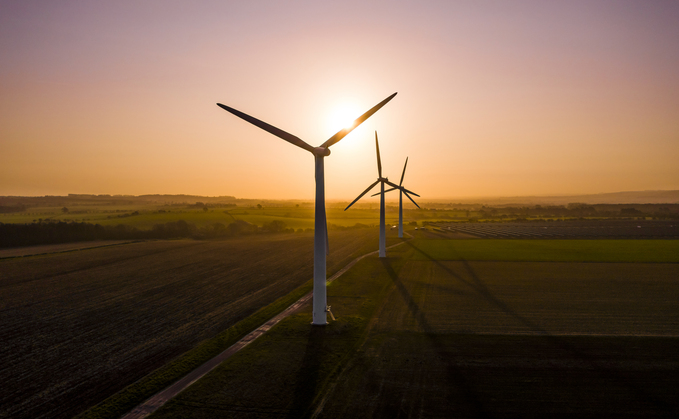
Partner Insight: ESO explains why a virtual energy system is key to meeting Britain's future electricity needs
When it comes to decarbonising the energy sector, success has never been so defined. The UK government has committed to reach net zero in the energy industry by 2035. To help deliver this future the ESO is developing solutions to support the industry through this transition, to effectively create a digitalised system capable of delivering a clean, resilient, and secure supply of energy. Now, the industry must take action to ensure this vision becomes a reality.
This is where the Virtual Energy System, an ecosystem of interconnected digital twins capable of delivering improved whole system decision making, comes in. It's an industry-led response to leaders across the sector, including the Energy Digitalisation Taskforce (EDiT), who have highlighted the need for better oversight of Great Britain's energy needs.
But for digitalisation to truly be successful, the entire industry needs to join the charge. That's why ESO has developed a set of six priority factors to ensure a shared vision of success.
These guiding principles will unite the industry under a common vision for the development of the Virtual Energy System. At the heart of them is collaboration - the need for players across the industry to come together and encourage a more open culture of sharing and cooperation.
Together, we can make crucial progress towards net zero in Britain. But how do we ensure that collaboration happens in the most effective way?
The benefits of a united energy sector
When it comes to Britain's energy, collaboration through data sharing can improve management decisions about energy supply and demand, increasing operational efficiency. It can also help operators identify and rectify issues of lacking infrastructure, enabling more proactive solutions.
This is already happening in Wales, where it will unlock benefits for Welsh citizens and communities alike. As a use case for the Virtual Energy System, ESO is helping create a digital replica of Wales' energy system, the first time digital twin technology has been used on this scale.
This collaborative project, led by the Welsh Government, will help accelerate the deployment of renewables and unlock benefits such as low-cost energy generation and a better understanding of new home-grown solutions for power supply. It will also support the country towards its target of 100 per cent electricity generation from Welsh renewable energy sources by 2035.
Delivered across Britain, the Virtual Energy System can provide nationwide progress towards a more efficient energy future - but only if the industry collaborates more effectively.
How can we enable industry cross-collaboration?
Together we can unlock the power of industry collaboration by fostering a culture of data sharing to ensure all industry players can contribute and reap the benefits of a digitalised system.
To enable this, the industry first needs a defined set of standards for data access and publishing across the industry, to ensure everyone can speak the same language when it comes to data sharing. There also needs to be a cultural shift within the industry towards encouraging and prioritising this sharing to breakdown siloes and unlock the potential of currently available data.
The Virtual Energy System will see a wide variety of actors taking part, with different motivations, needs, and levels of digital maturity. As such, an aligned common framework won't just make data sharing possible, it will also help the industry achieve beneficial mutual understanding whilst not being anticompetitive.
The six priority factors will support the development of the programme. One of ESO's priority factors, the need to raise awareness, prioritises the early and rigorous engagement of stakeholders both within your own organisation and beyond.
By ensuring stakeholders are onboard with the vision of the Virtual Energy System and the power of shared data, the industry can accelerate its delivery and maximise shared benefits.
Where can the Virtual Energy System take us?
With a collaborative industry effort fuelling the Virtual Energy System, we can all achieve more efficient and effective decision making.
The power of right-time data modelling enables industry players to better understand supply and demand and thus optimise their processes. These efficiencies can be passed down to the consumer, reducing bills and maintaining a competitive industry.
The Virtual Energy System will also provide opportunities to develop new innovations and solutions. One use case of the Virtual Energy System is the Dispatch Optimisation Tool, which provides system operators with a range of potential dispatch solutions based on real-time priorities for the grid. This enables them to make more effective and efficient decisions, optimising energy supply against the growing complexity of Britain's energy system.
And with better oversight the industry will also be able to plan future investments with more confidence. This makes delivering a fit-for-purpose network and getting more renewable energy onto the grid an easier task, helping accelerate decarbonisation efforts across the sector.
These benefits can only be fully enjoyed by an industry committed to the collective vision: the realisation of a digitalised, decentralised, and decarbonised energy system.
This kind of collaboration starts with the individual. As the industry comes together, it will take each of us in every organisation to learn about the resources available to them, and their role in the future of a digitalised energy system.
It's time for us all to act now to build the Virtual Energy System.
This article is sponsored by ESO.







